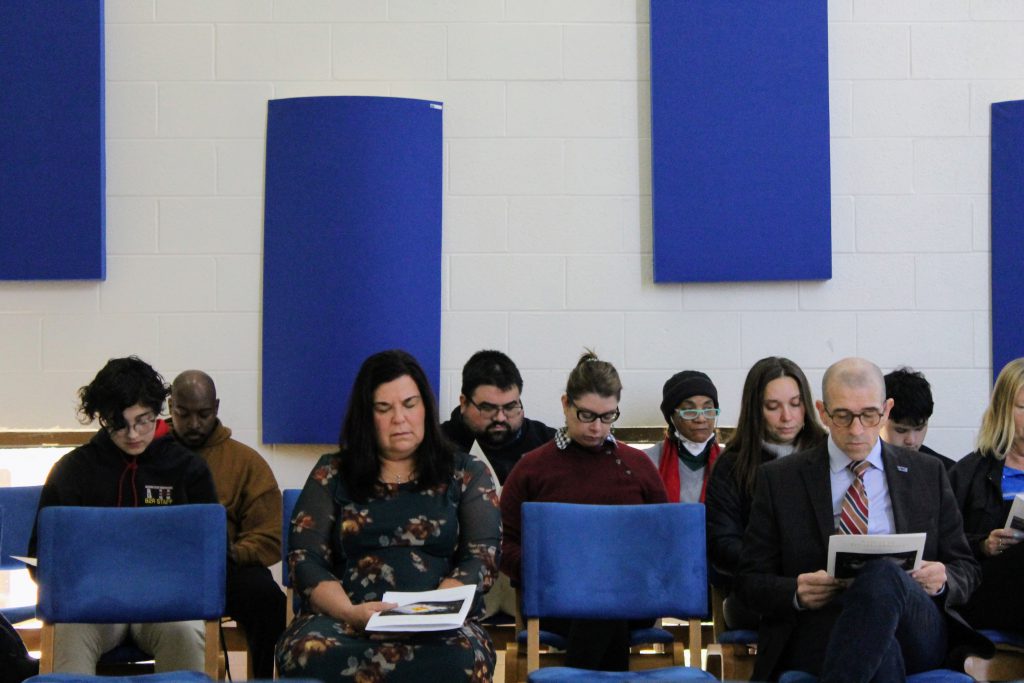Choosing an institution of higher learning to attend is considered to be one of the most important decisions a person can make in their life. However, there is often a misconception that smaller colleges and universities do not offer as many opportunities as larger institutions. But a recent poll released by the Gallup and Strada Education Network noted that may not be the case.
According to the survey, 45 percent of students at smaller colleges and universities “strongly agree that their professors care about them as people,” as compared with 24 percent at larger colleges and universities. Smaller here meant a college or university with a populace of fewer than 5,000 students, while larger described an institution with more than 5,000 students. The survey sought to learn more about “several key experiences indicating supportive relationships with professors and mentors.”
“I really think Wesleyan professors are really helpful to the students, they offer a lot of mentorship for students about planning their future and helping them succeed in life,” agreed senior Pat Suttle. “They offer a lot of encouragement and make you feel like you have someone in your corner; I think this is especially needed for those students who need extra encouragement.”
At Wesleyan this kind of kinship expands beyond professors. Other faculty and staff also work to help students succeed academically and in general. Senior Julie Manning had one such experience with Mollie Dunmyer in the Lighthouse: Center for Exploration and Discovery. Dunmyer and others at the Lighthouse help students find internships, externships and career opportunities. They also offer help with resumes, interviews and other aspects of job hunting.
“Mrs. Dunmyer was extremely helpful throughout my internship search: offering leads, providing encouragement, and helping improve my resume and cover letter. I suggest that fellow students capitalize on this resource,” Manning said.
The Lighthouse also hosts several job fairs throughout the year to connect students to potential employers for internships and careers.
Another aspect the Gallup poll examined was extracurricular activities. Twenty-one percent of students surveyed in smaller schools said they were heavily involved in extracurricular activities compared to 17 percent in larger schools. Virginia Wesleyan offers over fifty clubs and organizations as well as 22 varsity sports. Support for these activities is another way that Virginia Wesleyan faculty and staff show their commitment to their students.
Additionally the poll addressed research projects. Gallop found that students at smaller universities were more likely to work on research projects that lasted more than one semester. Fifty percent of VWU’s seniors produce original research projects each year.
The Lighthouse’s Undergraduate Research Program is designed to help those students who are interested in research. The program provides support for students, research grants, conference grants, and instructional workshops. Port Day held once each semester is an opportunity for students to not only share their internship and or research experiences but practice their public speaking skills as well.
Hofheimer Library is another resource for students who wish to do research. With knowledgeable staff, access to databases on and off campus, and (of course) books and other research materials, students have access to all the information they may need.
The library also offers two Library Research Awards for students who complete outstanding research projects. One of the two $150 awards is given to a junior or senior, while the other is for a freshman or sophomore. These awards give students a chance to be monetarily rewarded for their hard work.
The poll noted there was very little difference in how many students had internship and other relative work experience while in school regardless of the size of the institution. In fact, 44 percent of students from smaller schools reported they had an internship that granted them work experience, compared to 39 percent of students from larger schools. This is believed to be due in part to the active participation that professors and other faculty members of smaller schools exhibit in students search for internships and other opportunities.
Though smaller schools may not be able to offer the same degree programs and extensive curriculum of larger schools, there are still distinct advantages as the Gallup poll indicates. Wesleyan’s 13:1 student to faculty ratio allows for faculty and staff to work closely with students, ensuring that students receive the best education possible.
The Gallup poll can be found here for those interested.
Faith Auad
fmauad@vwu.edu
